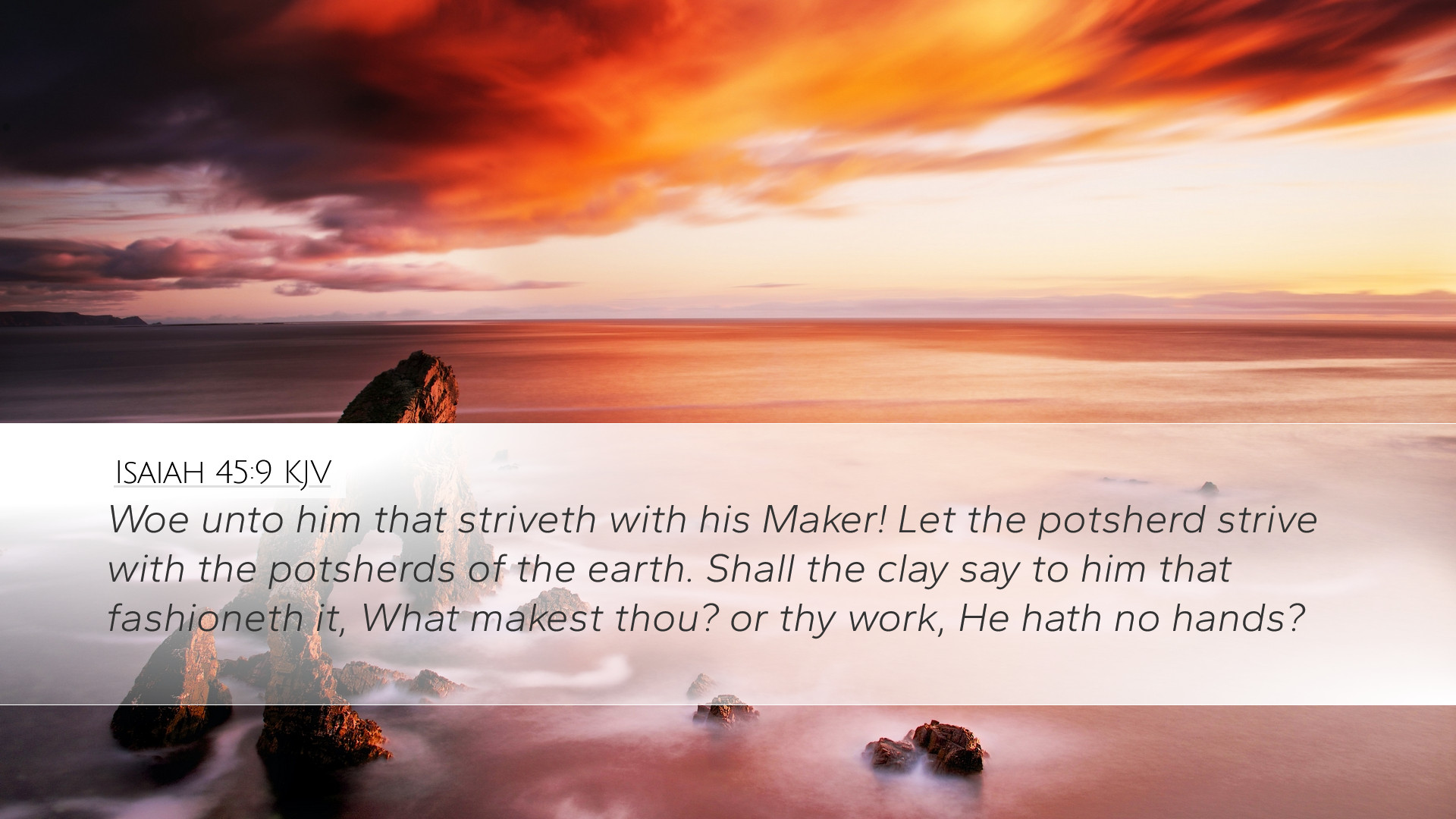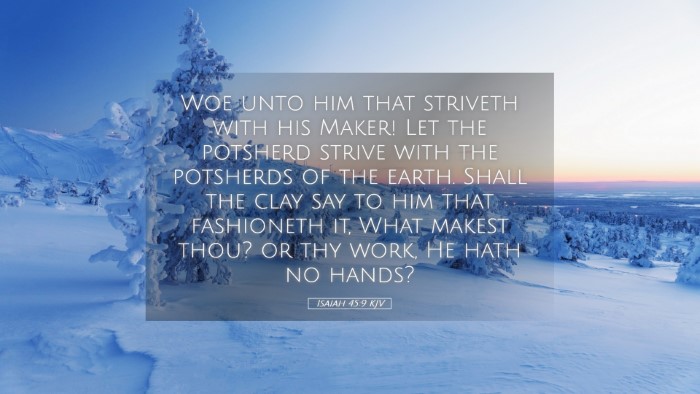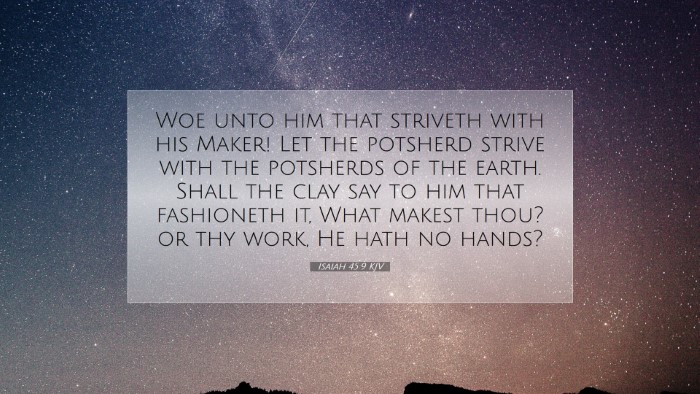Commentary on Isaiah 45:9
Isaiah 45:9 states: "Woe to him who strives with his Maker! Let the potsherd strive with the potsherds of the earth. Shall the clay say to him who forms it, ‘What are you making?’ or ‘Your work has no handles’?" This verse presents the fundamental relationship between the Creator and His creation, emphasizing the futility of questioning divine purpose.
Contextual Overview
This verse appears in a broader discourse in Isaiah, where the prophet is affirming the sovereignty of God over all nations and creation. Isaiah addresses the people of Israel, highlighting the power of God and their role as His chosen people.
Theological Insights
-
Divine Sovereignty:
Matthew Henry emphasizes God's absolute sovereignty. In the context of Isaiah 45, it becomes evident that God is in control not only of Israel but also of all nations, including Cyrus, whom He raised for His purposes. This verse underlines the absurdity of mere clay challenging its creator, stressing that humans must recognize their position beneath divine authority.
-
Human Ingenuity vs. Divine Wisdom:
Albert Barnes discusses the relationship between humanity's limited understanding and God's infinite wisdom. The metaphor of clay and potter illustrates that humans often misunderstand God's plans, akin to clay questioning the intentions of its potter. The comment becomes all the more poignant in light of human pride that thinks itself equal to the Creator.
-
Warning Against Rebellion:
Adam Clarke elaborates on the warning contained within this verse. The phrase "Woe to him who strives with his Maker" serves as a somber reminder of the consequences that accompany rebellion. Clarke notes that striving against God leads to spiritual disaster and highlights the importance of submission to God's will and purpose.
Imagery and Symbolism
The imagery of the potter and clay is rich with symbolic meaning in the biblical narrative. The potter represents God, who has the authority to shape and mold according to His desires and intentions. In contrast, the clay represents humanity, illustrating our weakness, dependence, and often our inability to see the bigger picture. This dynamic invites deep reflection on one's own posture towards God and His plans.
Practical Applications
-
Submission to God's Will:
As spiritual leaders and engaged laypersons, it is essential to cultivate a posture of humility and submission before God's sovereign will. This involves recognizing our limitations and trusting that God knows the ultimate purpose behind the shaping and circumstances of our lives.
-
Encouragement in Trials:
Recognizing God's sovereignty can provide comfort during trials and uncertainties. When faced with challenges, it is crucial for pastors and believers to remind themselves and others that God, as the master potter, is actively at work in every situation—even when it is difficult to see how.
-
Community Reflection:
This verse encourages communal reflection on how the church engages with God's purposes. Understanding the collective mission as a community shaped by God can facilitate unity and purpose in church workings, challenging believers to seek God's will collectively and inquire into their roles within the divine plan.
Conclusion
Isaiah 45:9 serves as a poignant reminder of the relationship between the Creator and His creation. The insights from renowned commentators bring forth rich theological concepts relevant for pastors, scholars, and students alike. As believers acknowledge God's sovereign role in shaping their lives, there is an invitation toward humility, trust, and vibrant communal living under His gracious hand.


